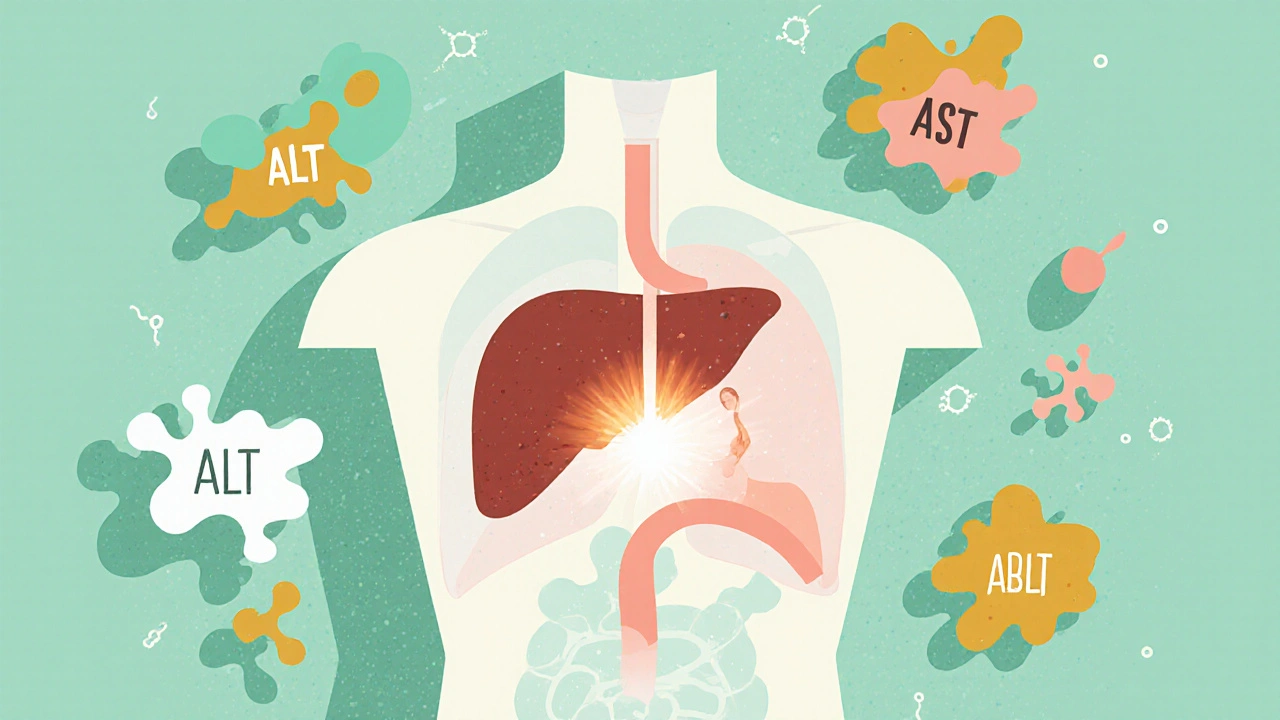ALT: What It Means, Why It Matters, and What Your Lab Results Tell You
When your doctor orders a blood test, ALT, alanine aminotransferase, is a liver enzyme that leaks into your blood when liver cells are damaged. Also known as SGPT, it’s one of the first signs your liver might be under strain—from alcohol, medication, fatty liver, or even a virus. Unlike other liver tests, ALT is mostly found in the liver, so when it’s high, it’s usually pointing straight to liver trouble.
High ALT doesn’t mean you have liver disease for sure, but it’s a red flag that needs checking. A level over 40 U/L is often considered elevated, though normal ranges vary by lab. If your ALT is 150, 300, or even 1000, that’s not just a number—it’s your liver screaming for attention. Common causes? Fatty liver from sugar or weight gain, hepatitis, certain painkillers like acetaminophen, alcohol, or even some herbal supplements. Some people see ALT rise after starting a new medication, like methimazole for thyroid issues or statins for cholesterol. Others notice it after a fever or infection, especially if they’re managing autoimmune conditions.
ALT doesn’t work alone. It’s usually looked at with AST, another liver enzyme. If ALT is higher than AST, it’s more likely a liver issue. If AST is higher, it could point to muscle damage or heart problems. But if both are up, your liver is definitely under stress. And while you can’t fix it with a pill, you can often turn it around—with diet, weight loss, cutting back on alcohol, or stopping a harmful medication. That’s why so many posts here focus on how drugs like Compazine, Tylenol, or even ketoconazole cream can affect liver enzymes. Or how conditions like chlamydia or autoimmune flare-ups might indirectly raise ALT through inflammation.
What’s interesting is how often ALT is ignored until it’s way too high. People think if they feel fine, their liver is fine. But fatty liver can creep up for years without symptoms. That’s why regular check-ups matter, especially if you’re on long-term meds like Coumadin, Lamictal, or Dutanol. Your liver is quietly handling all of it. And when ALT spikes, it’s not always about what you’re taking—it’s about what your body is doing with it.
Below, you’ll find real-world guides that break down exactly how medications, conditions, and lifestyle choices impact ALT levels. Whether you’re managing fentanyl patches, treating cat thyroid issues, or just trying to understand why your blood test came back weird, these posts give you the clear, no-fluff facts you need to act—before it’s too late.

Liver Function Tests Explained: ALT, AST, Bilirubin, and What They Really Mean
Understand what ALT, AST, and bilirubin levels mean in liver function tests. Learn how patterns, not single numbers, reveal liver damage, fatty liver, alcohol injury, or bile blockage.
